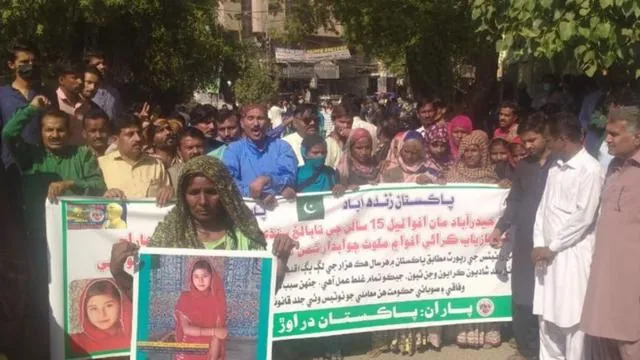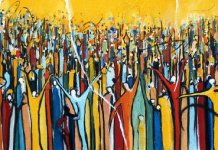A 16-page letter sent on October 26, 2022 by a group of United Nations Special Rapporteurs to the government of Pakistan on the issue of forced conversions to Islam has now been made public, minus the names of the witnesses the Rapporteurs relied on. It is signed by the Special Rapporteur on minority issues; the Special Rapporteur on freedom of religion or belief; the Special Rapporteur on the sale and sexual exploitation of children, including child prostitution, child pornography and other child sexual abuse material; the Special Rapporteur on contemporary forms of slavery, including its causes and consequences; the Special Rapporteur on trafficking in persons, especially women and children; the Special Rapporteur on violence against women and girls, its causes and consequences. The Working Group on discrimination against women and girls also signed to express its support.
The Rapporteurs mention the cases of several Hindu and Christian girls, including Mehwish Patras, Chashman Kanwal, Zarvia Pervaiz, and Saba Nadeem (other names are obliterated in the published version of the letter for security reasons). Aged between 13 and 20, they were kidnapped, raped, forcibly converted to Islam, and married to their captors.
In all but one of the cases mentioned by the Rapporteurs the girls were minors, meaning that under the current Pakistani law they could not have married. Yet, they were forced by Muslim clerics and their captors to appear in court and lie about their ages, stating that they had converted and married of their own free will.
The Rapporteurs openly accuse the Pakistani police of collusion with the kidnappers. Police officers, they say, have illiterate parents signing documents they do not understand, or blanks forms subsequently filled in by the police, where they attest that their daughters are older than 18, while the opposite is true.
Sexual relationships with underage girls, even if “voluntary” or after a “religious marriage,” should in theory be regarded as statutory rape in Pakistan. However, both the police and courts do not prosecute the kidnappers and “husbands,” and are happy to accept videos made or statements signed under duress where the girls claim that they are of age and consented to the “marriages.” Courts also accept documents that are obviously false, or ask friendly doctors to determine the “biological age” of girls that are then declared fit to marry.
The Rapporteurs also criticize the Parliament and politicians who failed to pass legislation effectively protecting religious minority women and girls from forced conversion and forced marriage.
Clearly, the letter identifies a systemic problem, which is not limited to the cases whose details it mentions. “While awaiting a reply, we urge that all necessary interim measures be taken to halt the alleged violations,” the Rapporteurs write. It seems that Pakistan is not willing to take any such measure.
Read it all in Bitter Winter
UN-paper-on-Pakistan-religious-freedom









